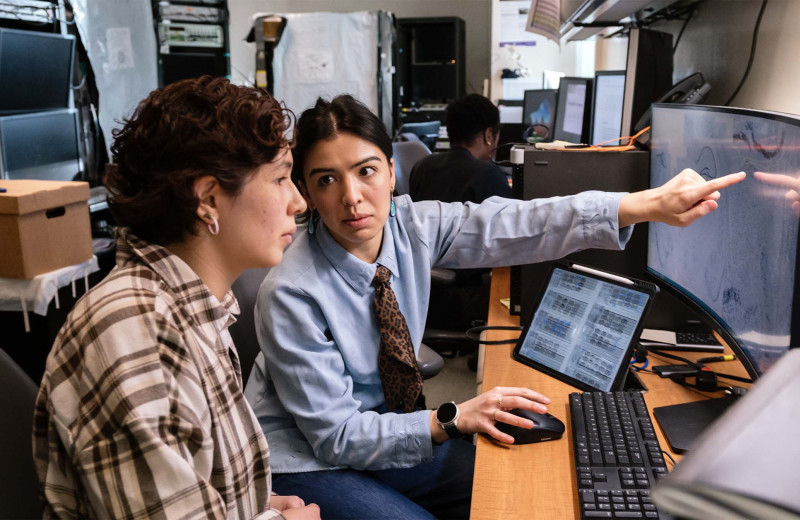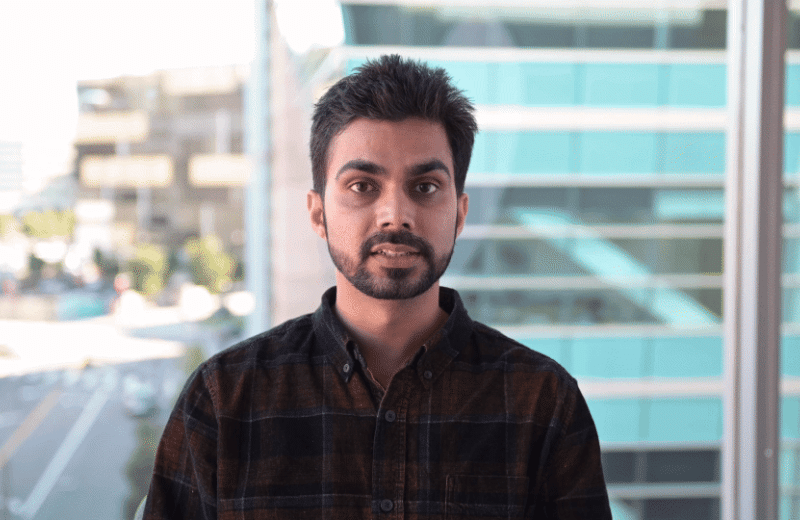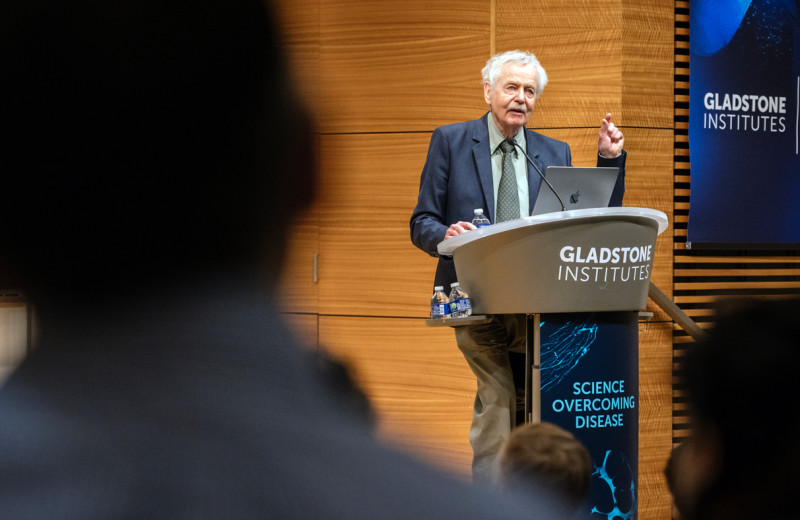Gladstone NOW: The Campaign Join Us on the Journey✕
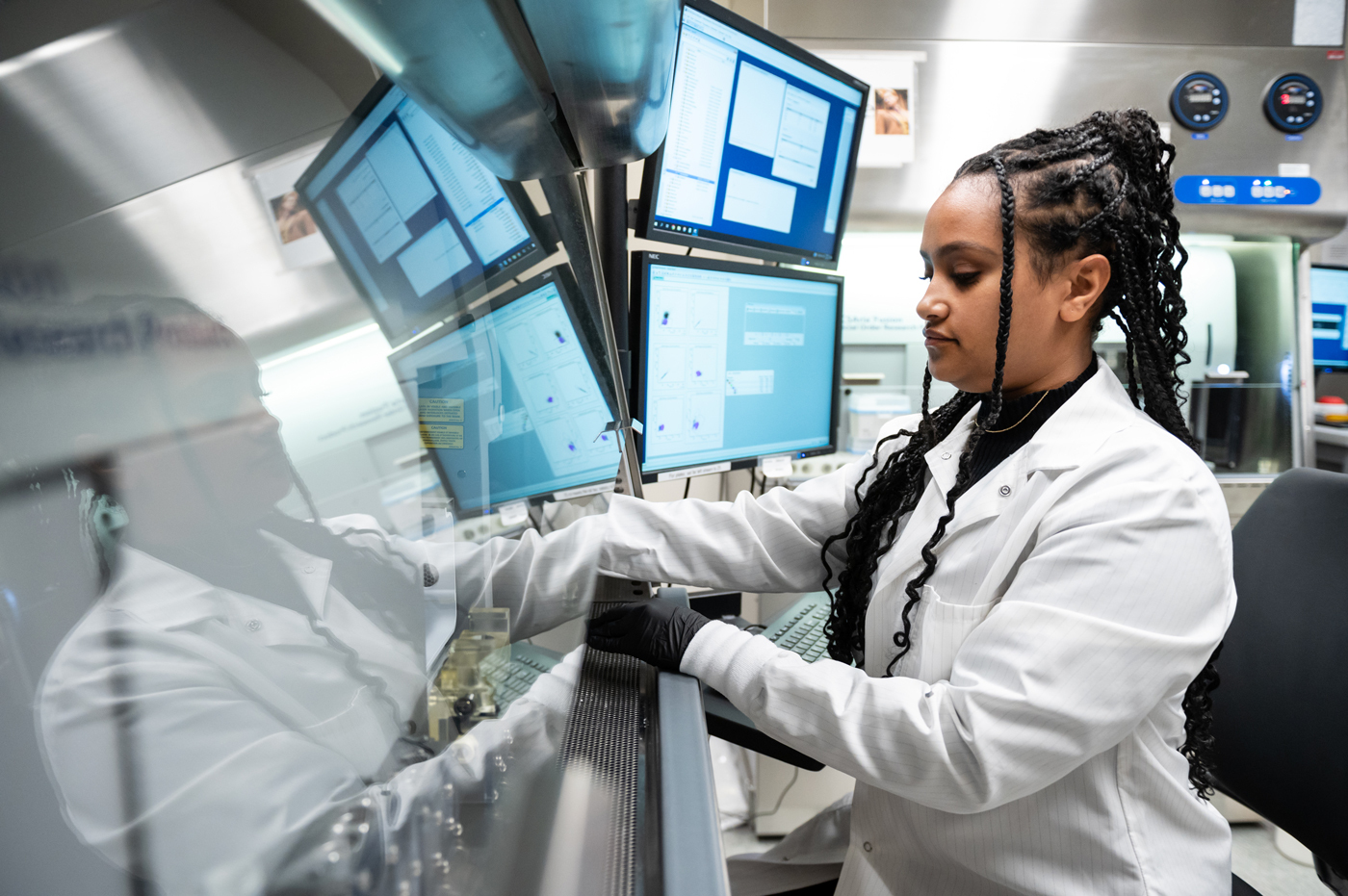
Get to know these dedicated members of Gladstone's community.
Black History Month is an important time to spotlight and celebrate the lives, joys, and contributions of Black Americans. In honor of the month, Black Gladstonians explain their work and share how their professional journeys led them to Gladstone.
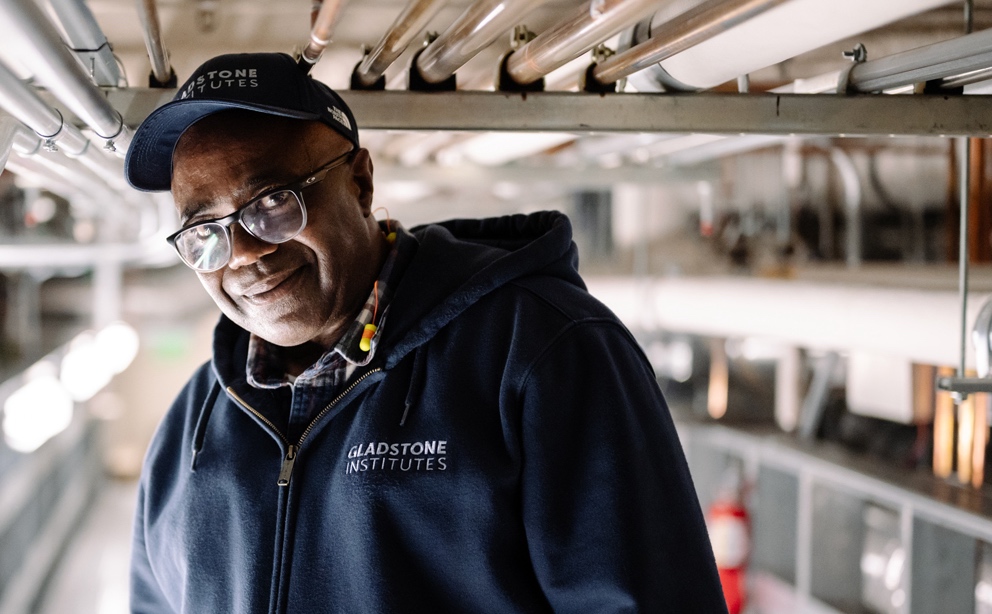
Curtis Guinn
Senior Building Engineer
My parents were part of the Great Migration. They settled in Oakland, and my dad was a general contractor. I started working as his helper at age 5, on weekends and during school breaks. After high school I joined the Navy, and spent 6 years onboard a ship traversing the globe. After completing my tour of duty, I worked in Southern California on numerous projects, and as I gained more experience, I moved into the energy sector, performing operations and maintenance on power plant equipment.
I came to Gladstone because I like to be challenged, and I was told that Gladstone is the place to be.
I eventually transitioned into data center operations, performing operations and maintenance. My last major project was at NASA Ames Research Center, where my work mostly involved remediation of systems that were nearing the end of their usefulness. I came to Gladstone because I like to be challenged, and I was told that Gladstone is the place to be. Overseeing an aging building and its equipment, and being part of the team working to modernize and make the building operation sustainable for the next 10–20 years is the type of challenge I was seeking at this stage of my career.
My primary responsibilities are to support the animal care facility and biosafety level labs. In addition, I’m tasked with various ongoing projects related to the infrastructure of the building. This includes fire and life safety, HVAC, water purification, air, vacuum, and emergency standby power systems.
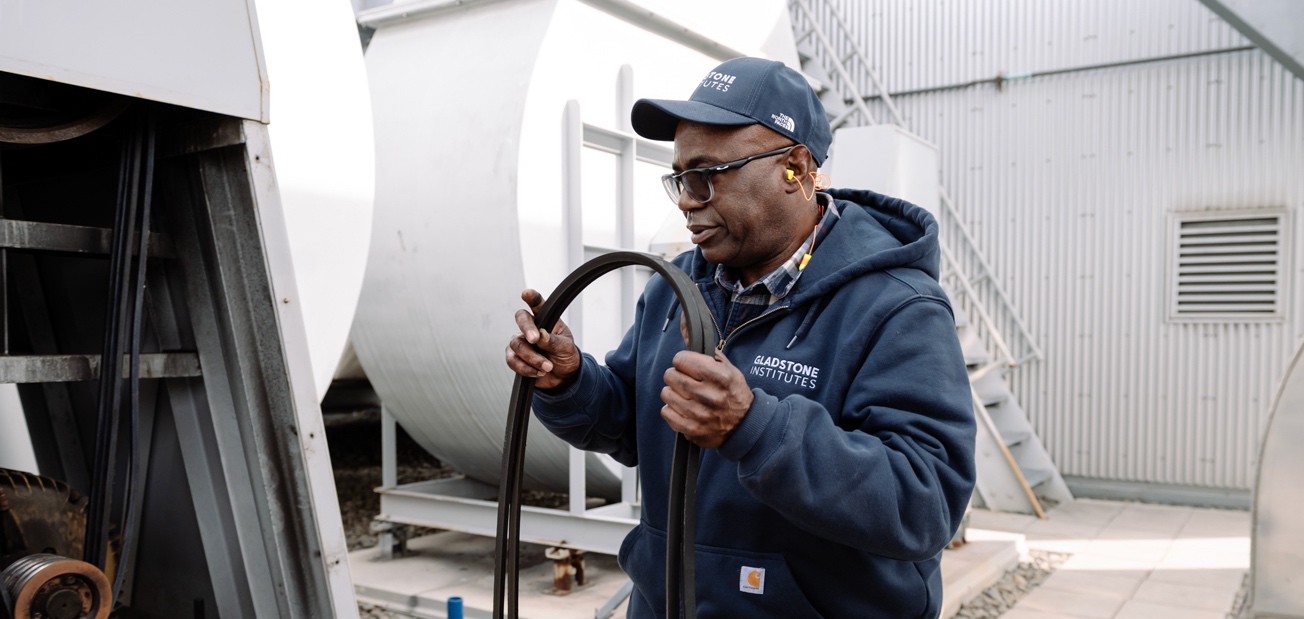
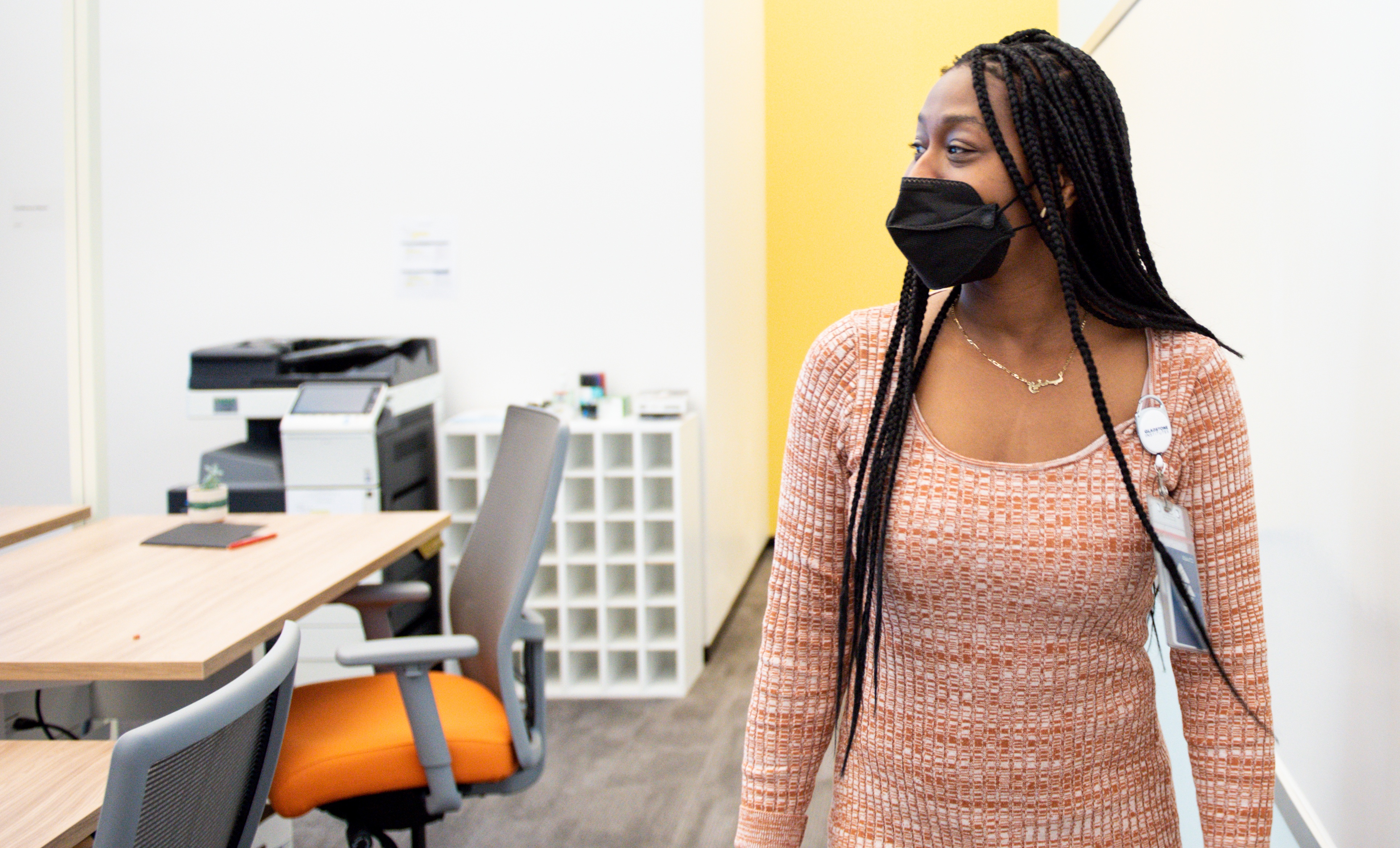
Zainab Yusuf-Sada
Executive Administrator
I’m the executive administrator for the office of the director of Gladstone Institute of Data Science and Biotechnology. I support institute initiatives, the Pollard lab, and the Bioinformatics Core. I’m also a co-founder and active member of Elevated Voices, Gladstone’s community group that supports people of color, and I’m happy to be a part of the diversity, equity, and inclusion (DEI) Council at Gladstone.
I’m incredibly proud to be from a country that is rich in agriculture, rich in culture, that values education, and significantly contributes to the economy. I’ve always wanted to work for an organization that has similar qualities, and I was able to find it in Gladstone.
I’m proud to call Nigeria—Africa's giant—my home country. We Nigerians have an ongoing joke that everyone knows at least one Nigerian. That’s because Nigeria is the seventh most populous country in the world, and has the third largest movie industry after Hollywood and Bollywood.
Besides populating the world and providing entertainment, Nigeria also produces 4 percent of the world's oil and is home to Africa's richest man, Akilo Dangote.
Nigeria has shaped my personal and professional journey. I’m incredibly proud to be from a country that is rich in agriculture, rich in culture, that values education, and significantly contributes to the economy. I’ve always wanted to work for an organization that has similar qualities, and I was able to find it in Gladstone.
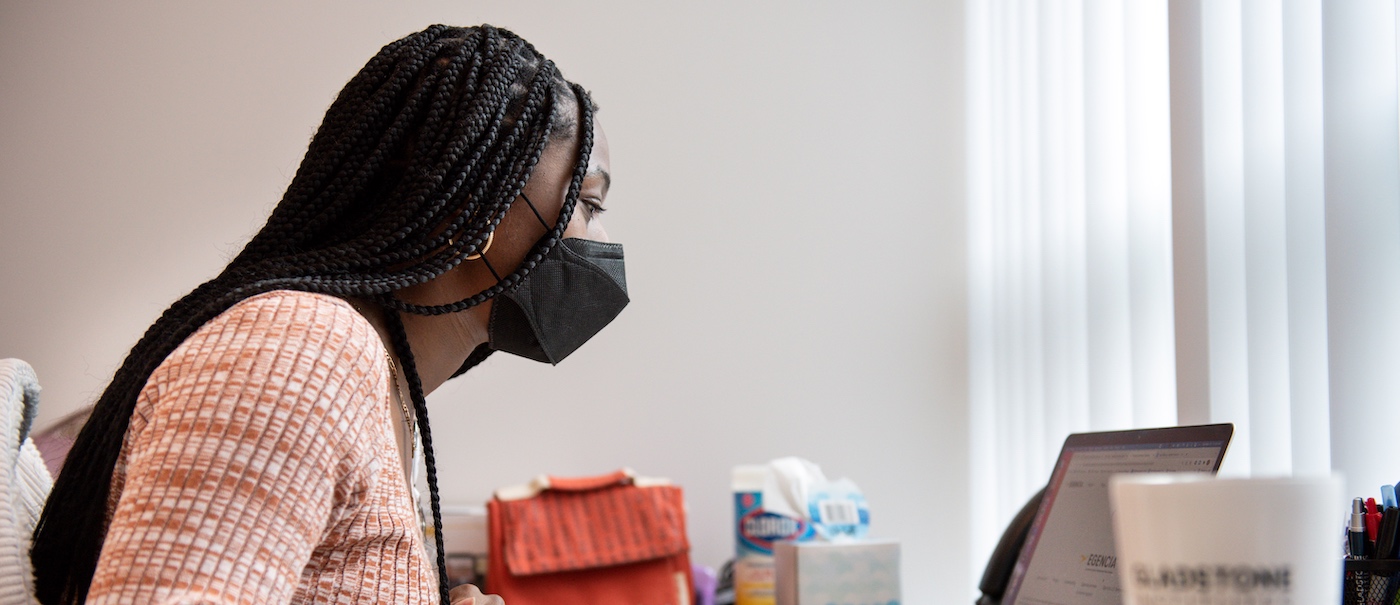
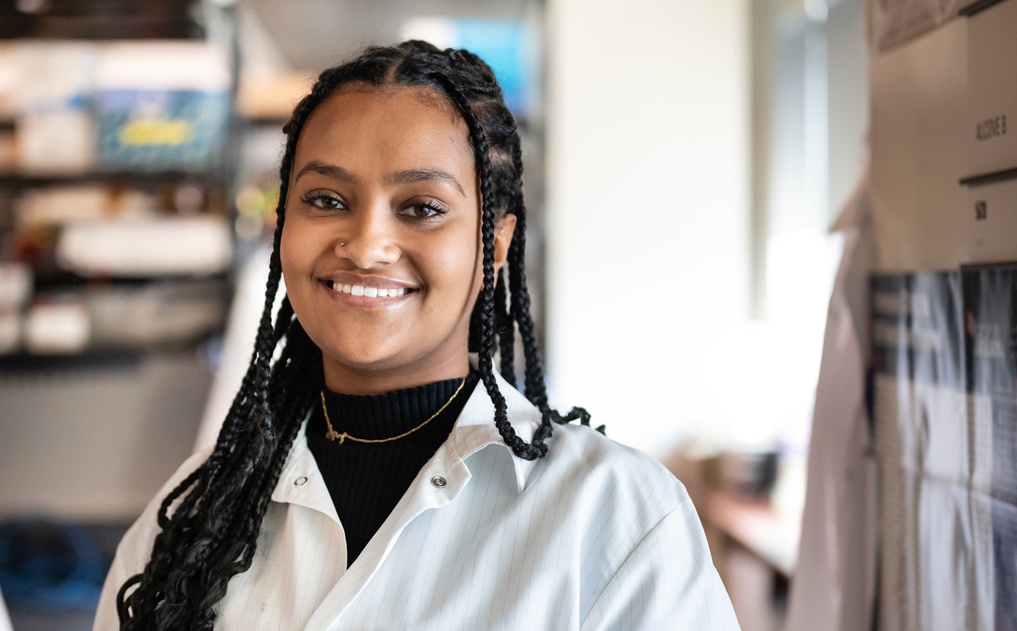
Tsion Abay
Research Associate
I was born and raised in Ethiopia. I was first exposed to scientific research as an international student in the Krummenacher lab at Rowan University, and I was inspired by the large-scale impacts that can be achieved through successful research. Once I graduated, I started working at Twist Bioscience, where I was developing assays for DNA and RNA product lines. I really enjoyed working at the forefront of genomics and synthetic biology, but I wanted to learn how to use these tools to study things affecting human health. I then transitioned to a role in the Gladstone-UCSF Institute of Genomic Immunology, working with Affiliate Investigator Ansu Sapathy, where I study viral reactivation in the context of immunotherapies.
I believe that better representation in the scientific community can help us broaden our views and push us to work on combating issues that affect marginalized groups.
I believe that better representation in the scientific community can help us broaden our views and push us to work on combating issues that affect marginalized groups. For instance, there is an ongoing civil war in my hometown of Tigray, Ethiopia. Although it is considered one of the most brutal wars in current history, it has received very minimal news coverage. I often think about the catastrophic impacts of war on many aspects of society, including education and health. This has been a big motivator for me to pursue graduate training—so I can try to work on issues that are affecting resource-poor settings globally.
My time at Gladstone has been amazing as I've had the opportunity to use technologies that provide remarkable resolution of previously unknown biology.
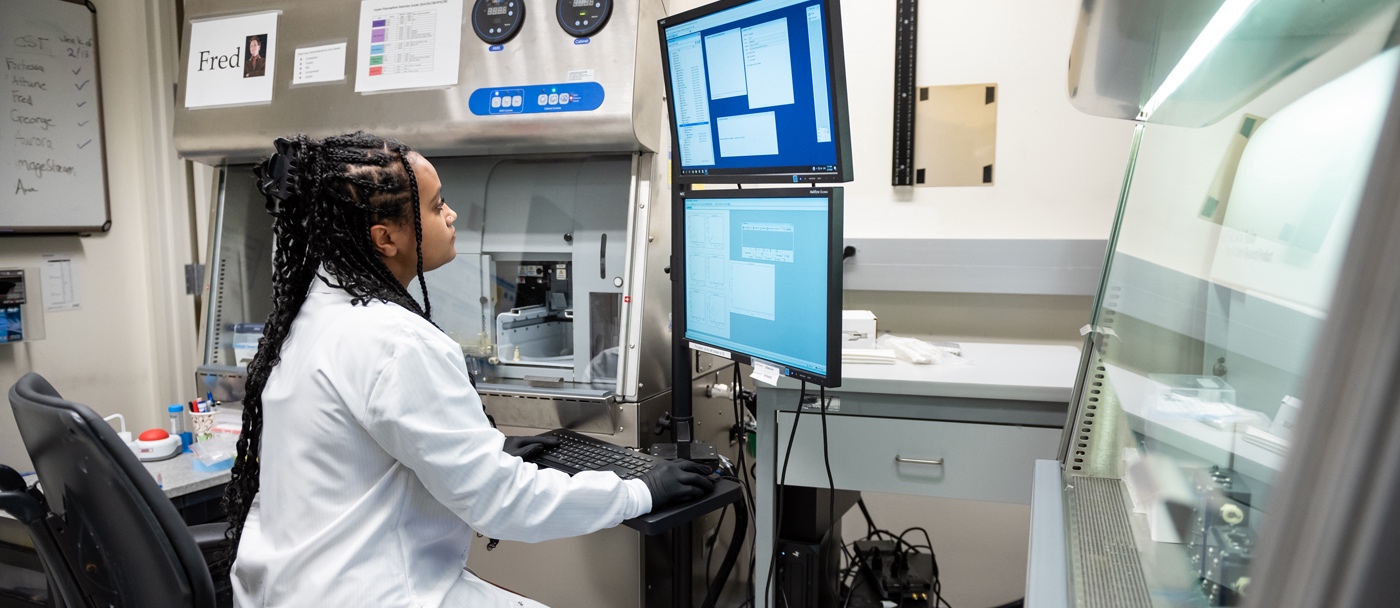
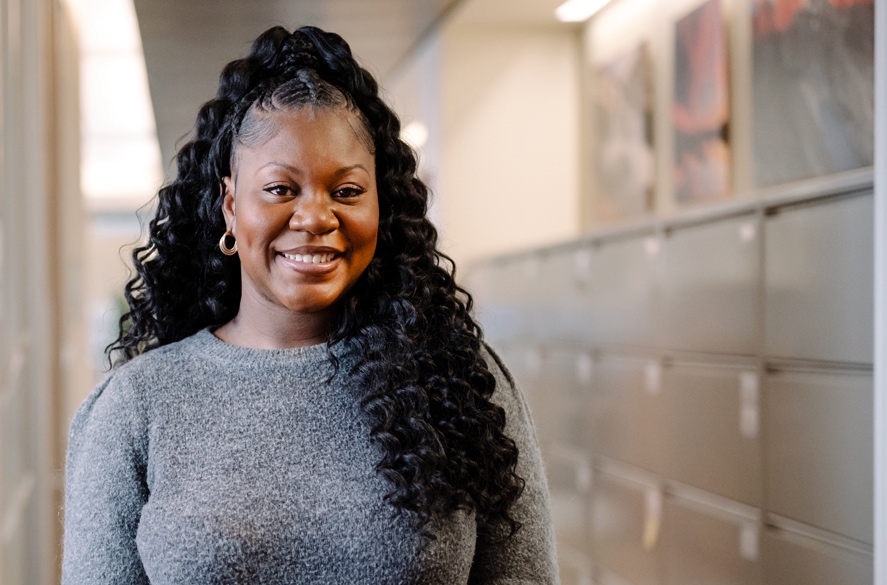
Nicole Velasquez
Administrative Program Manager
I’m currently the administrative program manager for the director of the Gladstone Institute of Cardiovascular Disease. In this role, I oversee the non-scientific and operational services and processes, which can range from floor restructuring projects to organizing institutional happy hours—I wear many hats.
After joining Gladstone in 2018, I knew I had become a part of a special community. Witnessing the passion from scientists to administrators is an honor, and being a part of an organization whose goal is to use science to overcome disease has played an integral part in my professional and personal life.
Having the opportunity to share what I do at Gladstone and where I come from is a reflection of the strides that are being taken to highlight the importance of representation and diversity.
Coming from a Caribbean background, I have witnessed first-hand various diseases that plague third world countries. My roots are in Belize, a small beautiful country in Central America. Belize is home of the Great Blue Hole and ancient Mayan ruins, which I love to visit when back home. The sandy beaches and blue waters remind me of the richness of life.
Having the opportunity to share what I do at Gladstone and where I come from is a reflection of the strides that are being taken to highlight the importance of representation and diversity, and how various backgrounds can come together for a greater purpose. Gladstone as a whole is a portrayal of that.
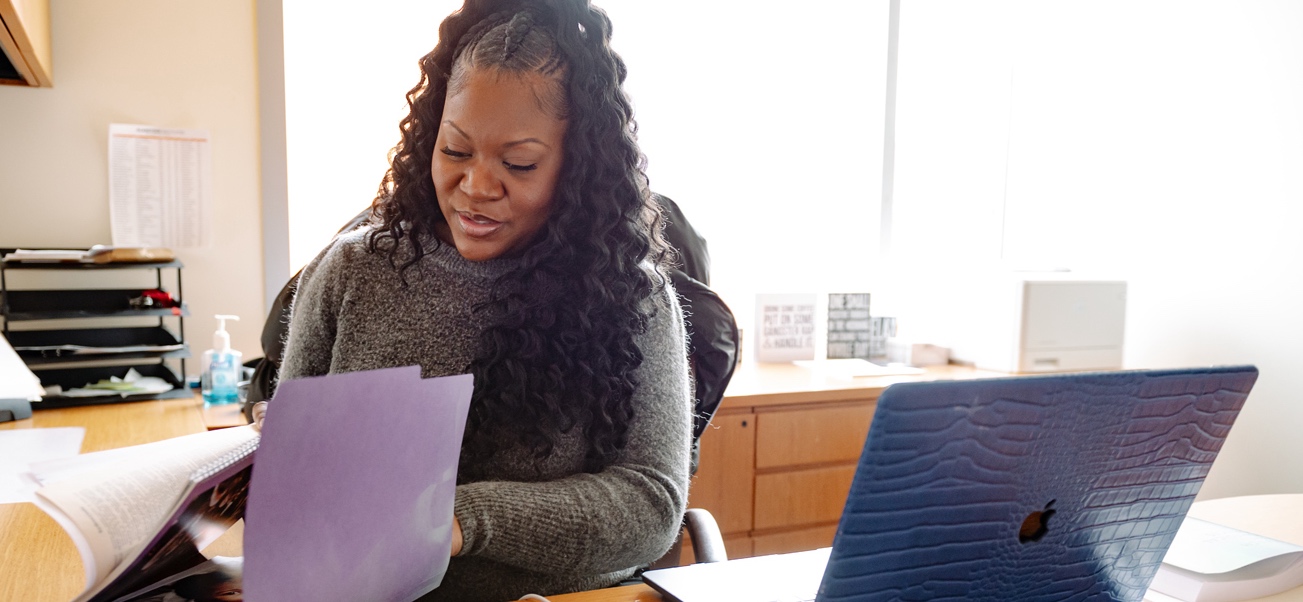
Want to Join the Team?
Our people are our most important asset. We offer a wide array of career opportunities both in our administrative offices and in our labs.
Explore CareersVoices of Outstanding Mentorship
Voices of Outstanding Mentorship
Three recipients of Gladstone’s Outstanding Mentoring Award share their personal approaches to mentorship and reflect how this passion has shaped their own growth as leaders.
Profile Roan Lab Graduate Students and PostdocsMeet Gladstone: Shyam Jinagal
Meet Gladstone: Shyam Jinagal
Shyam Jinagal explores how genetics, aging, and regeneration shape the heart—and how those insights could one day restore heart function after injury.
Graduate Students and Postdocs Profile Cardiovascular Disease Srivastava LabA Sculptor of Modern Regenerative Medicine
A Sculptor of Modern Regenerative Medicine
Among his myriad accomplishments, Rudolf Jaenisch—winner of the 2025 Ogawa-Yamanaka Stem Cell Prize—was the first to demonstrate the potential of induced pluripotent stem cells to treat disease.
Awards Ogawa Stem Cell Prize Profile Regenerative Medicine Stem Cells/iPSCs

